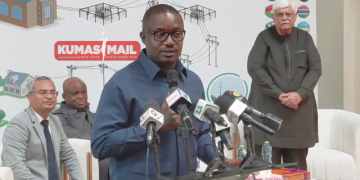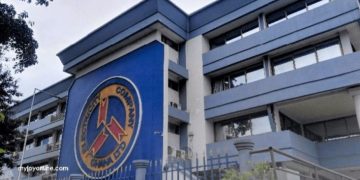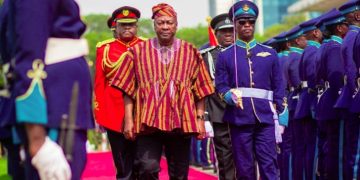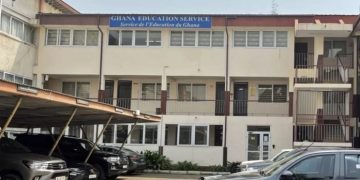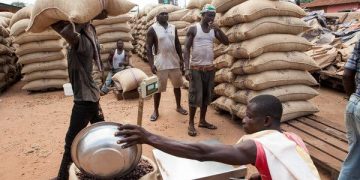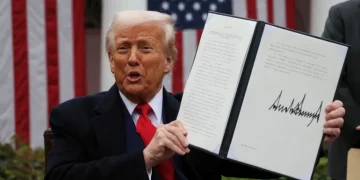Nearly one in every five Ghanaians made informal payments to public officials in the first half of 2025, according to new findings from the Ghana Statistical Service’s (GSS) Governance Series Wave Two Report. The data was released on Tuesday as part of the 2025 African Statistics Day celebration.
The Government Statistician, Dr. Alhassan Iddrisu, who presented the report, highlighted the importance of timely governance data in strengthening transparent, accountable and responsive institutions. He explained that the Governance Series integrates citizen experiences with administrative data to help policymakers assess participation, transparency and public service delivery.
The report shows a decline in overall bribery prevalence. About 14.3% of respondents admitted giving money or gifts to public officials between January and June 2025, down from 18.4% in the previous wave. Despite the decline, the frequency of bribery among those who engaged in the act rose sharply. The proportion of respondents who gave gifts five or more times increased from 6.9% to 24%.
Money remained the most common form of gift, with more than half of givers paying ₵100 or less. Direct requests for bribes by officials dropped from 51.3% to 38.6%, while voluntary “appreciation” payments nearly doubled from 17.6% to 32.9%. Reporting of bribery—whether formally or informally—also saw a decline.
The Motor Traffic and Transport Division (MTTD) of the Ghana Police Service remained the institution most associated with bribery, though its share fell from 61% in the first wave to 51.9%.
Top 10 Institutions Whose Officials Most Frequently Took Bribes
- Police – MTTD – 51.9%
- Police – General Duties – 37.4%
- Passport Office – 29.9%
- Traffic Management Authority (City Guard) – 28.9%
- Ghana Ports & Harbours Authority – 28.0%
- Births & Deaths Registry – 23.8%
- Forestry Commission – 23.7%
- Food & Drugs Authority – 22.2%
- DVLA – 20.2%
- Police – CID – 19.9%
Bottom 10 Institutions With the Lowest Bribery Incidence
- Public Banks & Financial Institutions – 1.8%
- Members of Parliament/Legislature – 1.2%
- Social Security/Welfare Agencies (SSNIT, LEAP, etc.) – 0.4%
- Ghana Statistical Service – 0.2%
- National Commission on Civic Education – 0.0%
- Factory Inspectorate – 0.0%
- Embassies/Consulates – 0.0%
- Narcotics Control Commission – 0.0%
- Ministry of Education – 0.0%
- Minerals Commission – 0.0%
Beyond corruption metrics, the report found significant improvements in political inclusion. The share of Ghanaians who felt they had a say in national governance jumped from 54.8% to 68.4%, while the proportion who felt completely excluded dropped from 42.4% to 29.2%. Young adults aged 18–24, citizens over 65, and people with difficulty performing daily activities recorded some of the highest gains.
Despite progress nationwide, the North East, Upper East and Northern regions remain the areas with the highest feelings of exclusion, though all recorded improvements.
The launch brought together representatives from government, civil society, academia, development partners and the media, who discussed how the findings could inform policy reforms and institutional monitoring.
The GSS encouraged the public, researchers and policymakers to download the full Governance Series Wave Two Report from www.statsghana.gov.gh and use the data to advance efforts toward a more just, peaceful and inclusive society.
The Governance Series forms part of the GSS mandate under Act 1003, which requires the production of high-quality data for national development. The Service continues to publish key indicators such as inflation, GDP and population statistics to support government, businesses and development partners nationwide.
Source: www.kumasimail.com



